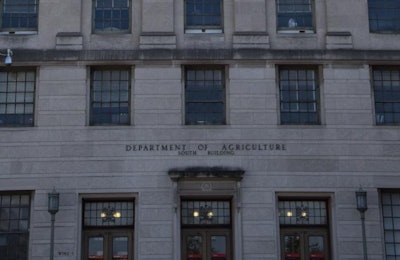
The U.S. Department of Agriculture (USDA) is withdrawing the Grain Inspection, Packers and Stockyards Administration’s (GIPSA) interim final rule (IFR) on competitive injury, and its proposed rule on unfair practices and undue preferences. After a 180-day extension of the comment period, the interim final rule was scheduled to go into effect on October 19.
The IFR was originally published in October 2016, near the end of the Obama administration, and was set to take effect in February 2017, before it was delayed by the new presidential administration. The IFR attempted to renew a proposal rejected by Congress through four funding bills and directly circumvented the rulings of eight separate federal appeals courts .
The IFR would have greatly limited marketing agreements that allow the industry to meet consumer demand for various animal handling and production requirements, such as organic, grass fed, raised without an antibiotics and others, limiting the availability of these products for consumers, according to a statement from the North American Meat Institute (NAMI).
National Chicken Council response
“I want to thank Secretary Perdue for USDA’s thorough and meaningful review of these controversial rules that would have opened the floodgates to frivolous and costly litigation,” said National Chicken Council (NCC) President Mike Brown. “It is clear the administration took into account the thousands of comments it received and recognized these rules would have come with deep economic consequences for American poultry and livestock producers.”
“We are also pleased that USDA decided not to issue a final rule on the performance based poultry grower ranking system, a system where more efficient farmers are paid premiums based on their performance.” Brown added. “Rather, the department will continue to study this and we look forward to continuing to work with USDA to help explain the merits of a system that has benefited farmers, chicken processors and consumers for seven decades.”
Brown also stressed that today’s livestock and poultry contracting and marketing practices are already and remain regulated by GIPSA, which administers and enforces the Packers and Stockyards Act to protect farmers, ranchers and consumers, and farmers already benefit from the protections of the Act.
In comments filed on March 24 and subsequently on June 12, NCC explained in great detail the numerous reasons why the agency’s interim final rule and proposed rules were ill-advised, would inflict billions of dollars of economic harm to American agriculture, exceed GIPSA’s statutory authority, and represent an arbitrary and capricious abuse of federal regulatory authority.
North American Meat Institute response
“We appreciate Secretary Perdue and the agency carefully considering the many comments submitted, including strong opposition from many livestock and poultry producers who recognized the interim final rule would have greatly harmed the entire industry,” said Barry Carpenter, president and CEO of NAMI. “The secretary and his staff recognized the considerable harm the rule would have done to those farmers and ranchers, as well as consumers, retailers, and meat packers and processors.
“The Meat Institute has long argued the IFR was inconsistent with the existing statute, years of judicial precedent, and the will of Congress, with a price tag in the billions. The administration’s fresh look shows it’s time to move on from this irresponsible rule,” Carpenter said.

















